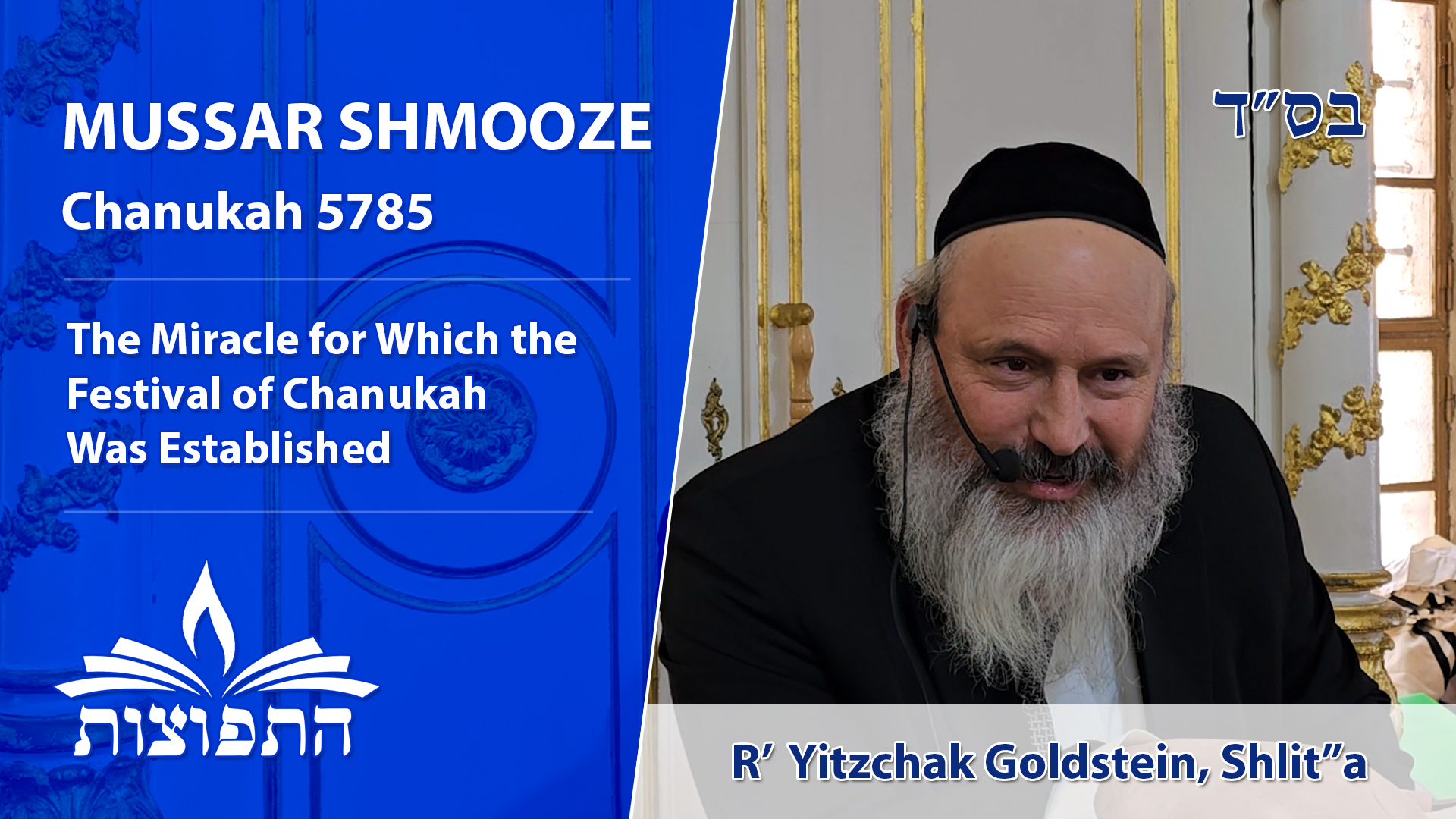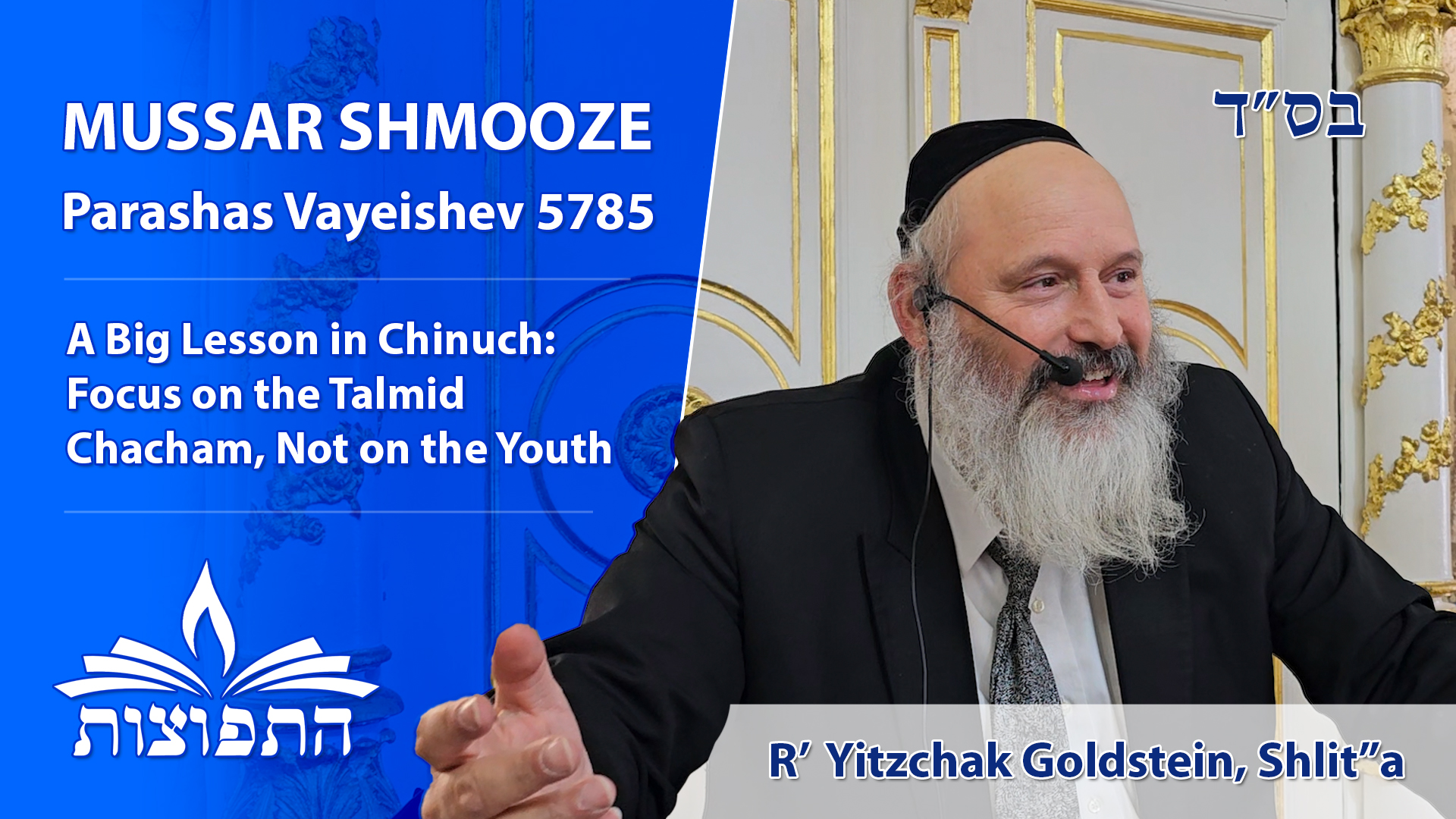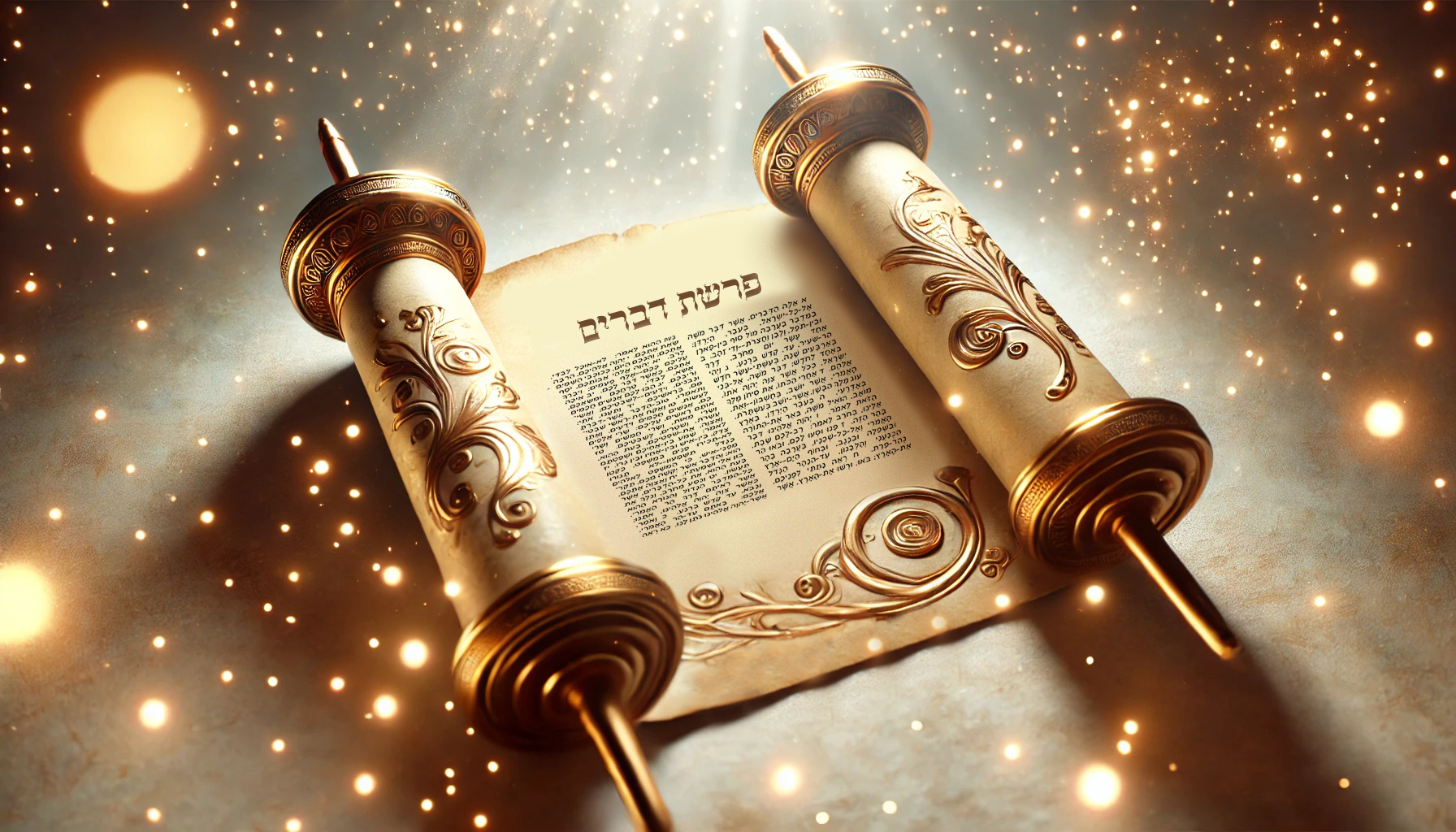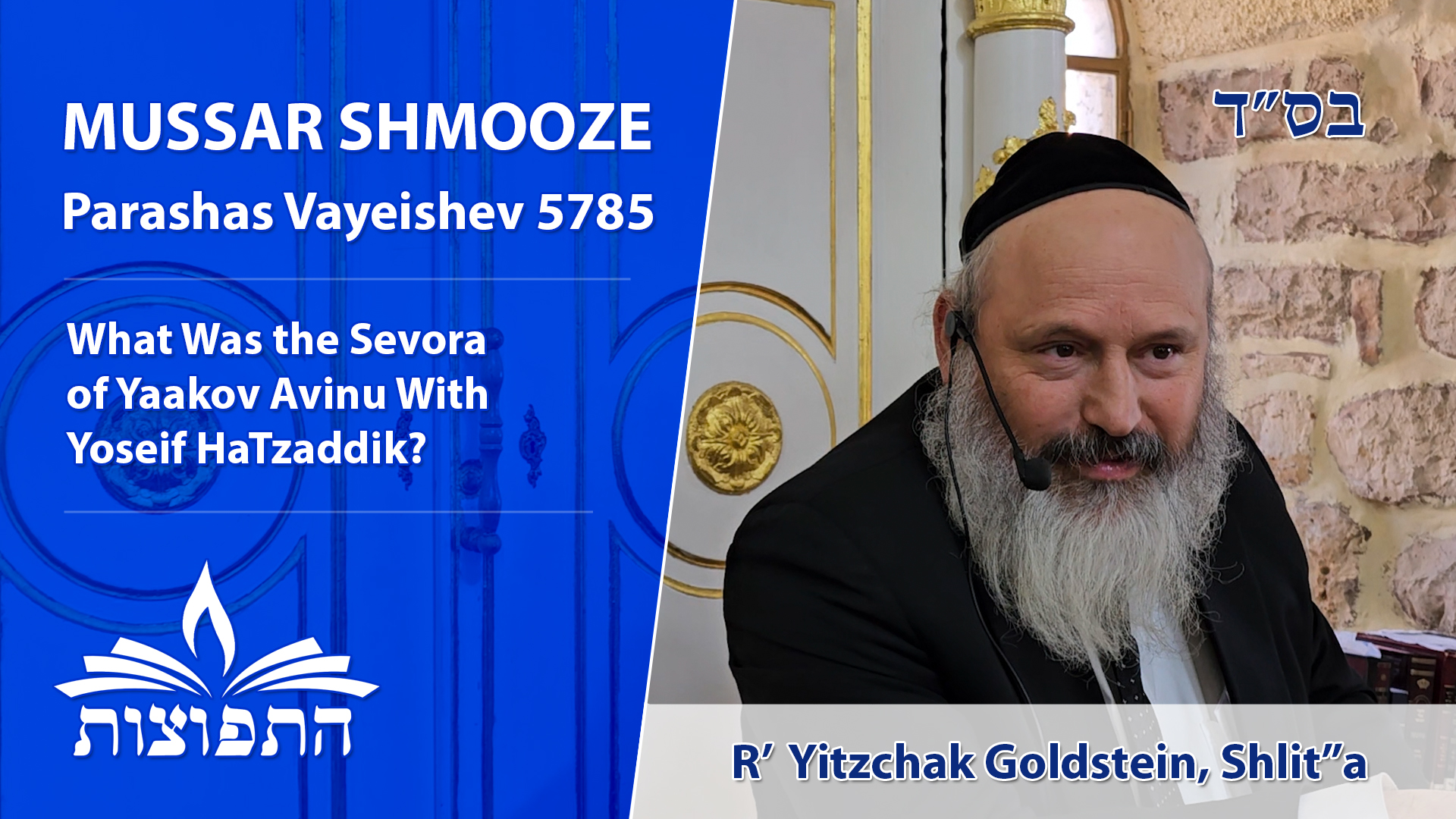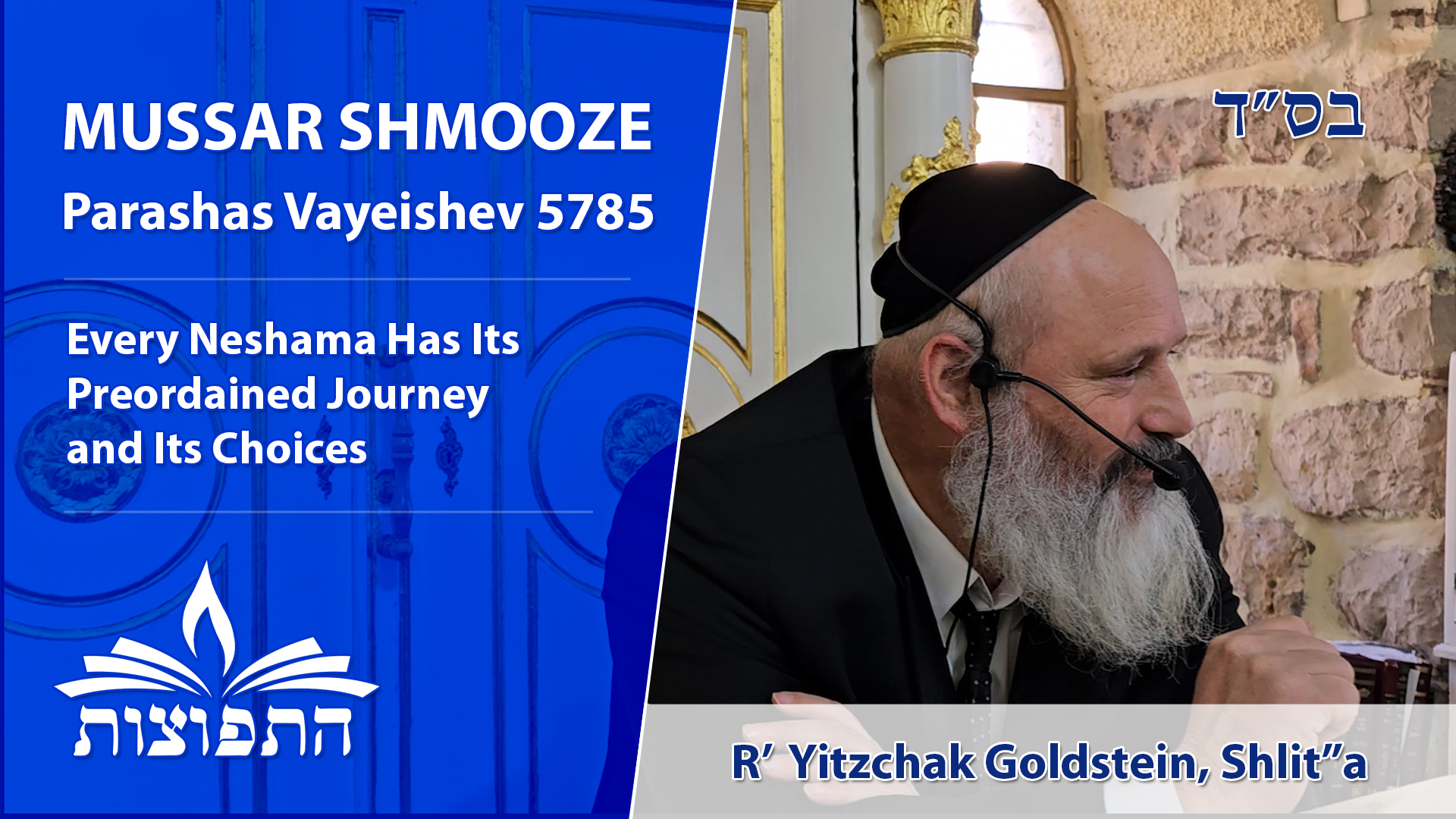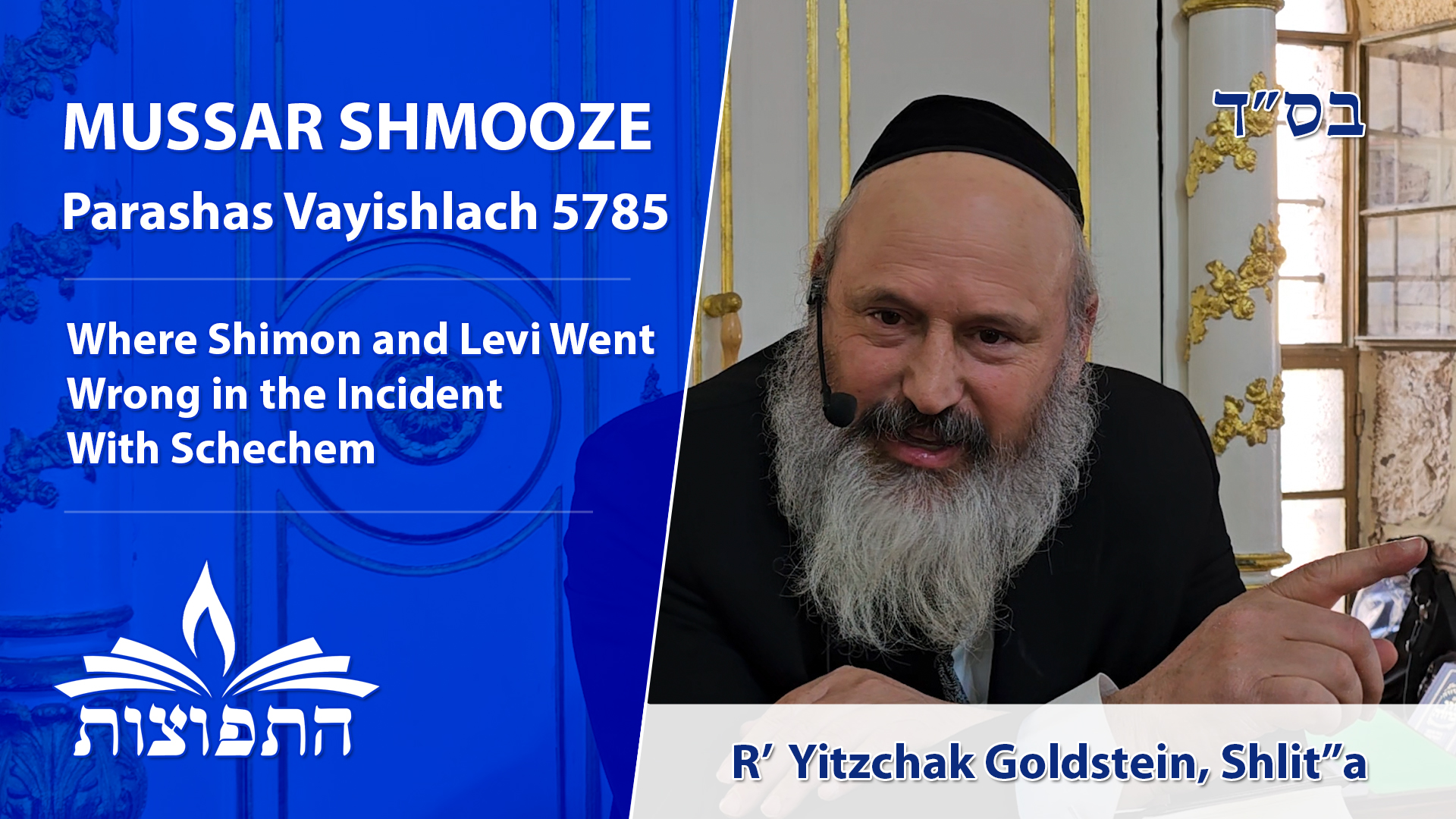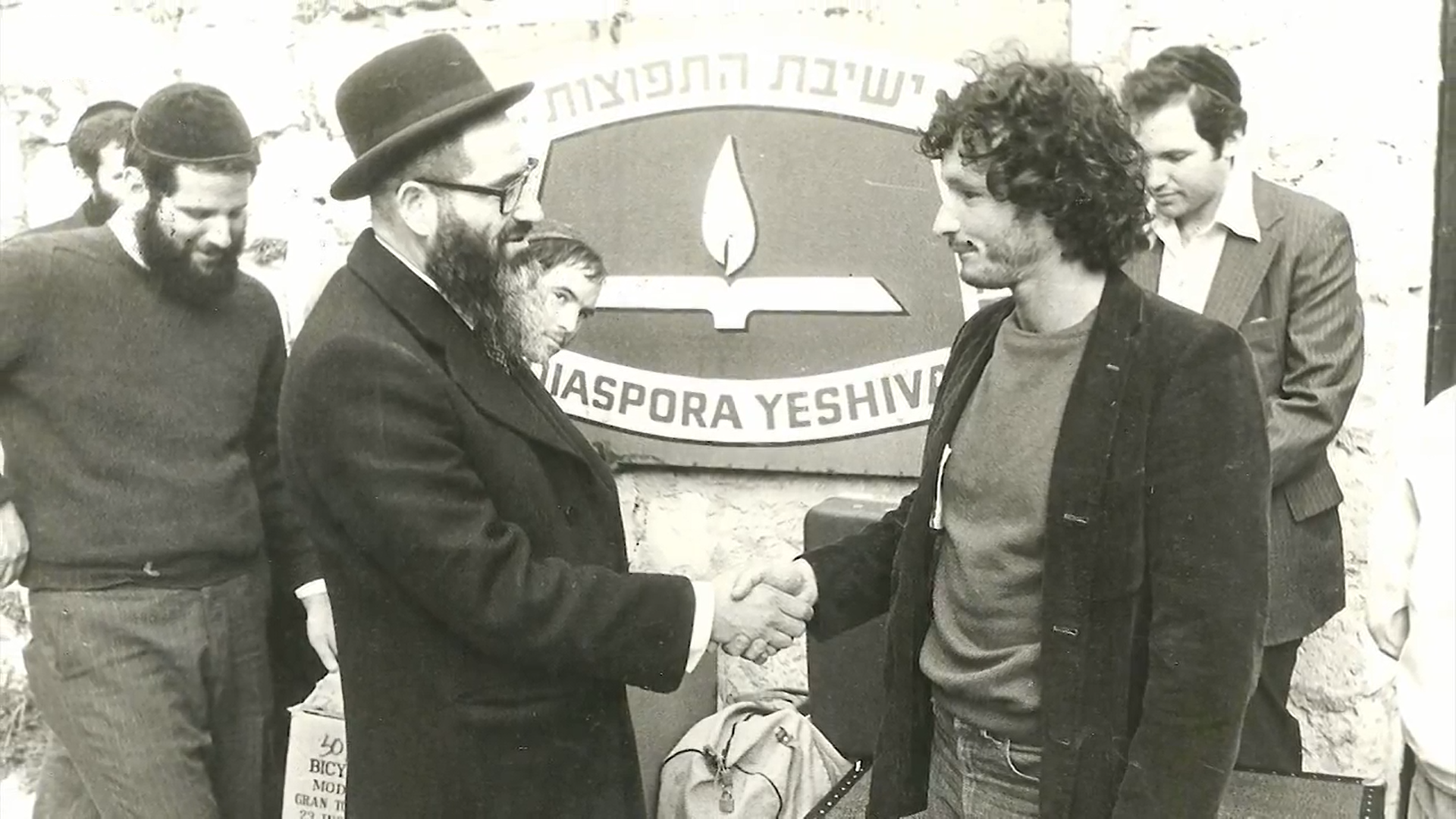The Rosh Yeshiva speaks about the miracle for which the Festival of Chanukah was established and its significance.
The Rosh Yeshiva speaks about an important difference between Yoseif and Yaakov’s other sons,
and why the Torah describes Yoseif as a na’ar (youth), which implies immaturity, even though he
was a very wise son, who was able to grasp the Torah of Ya’akov (Jacob), and we should learn from
this about teaching our children.
Explore the unique status of Sefer Devarim—its divine origins, Moshe’s role, and how it redefines rebuke, teshuva, and our bond with Hashem.
What disappointment Yosef could have felt. This disappointment could have shaken him to the core. And yet, we see no mention of this.
The Rosh Yeshiva speaks about the preference Ya’akov (Jacob) showed to Yoseif (Joseph) over his other sons, and how it led to the galus (exile) in Mitzrayim (Egypt), why he did it anyway, and what we should learn from it in regards to raising children.
The Rosh Yeshiva speaks about the story of Ya’akov (Jacob) and Yoseif (Joseph) and the reality that each of us have our own unique journeys in this world, some of which is preordained and some of which we get to choose, and how to be happy with the life that HaShem has given us with emunah (“faith”) and bitachon (trust).
The Rosh Yeshiva speaks about the incident in Parashas Vayishlach with Ya’akov’s (Jacob’s) daughter Dinah and Shechem, and the response of Shimon and Levi, where they went wrong, what they should have done, and what we should learn from this.
Explore Yaakov Avinu’s faith, by making peace with Lavan in a profound shiur by Rabbi Yitzchak Goldstein.
Hespeidim (eulogies) and siyum on the Eighth Yartzeit of the revolutionary founder of Diaspora Yeshiva Toras Yisrael — the original baal teshuva yeshiva — HaRav HaGaon Mordechai Goldstein, ztz”l.
Doeg the Edomite teaches us how critical it is to work on our traits of character. Doeg was a talmid chacham [a Torah scholar], and had many wonderful qualities, but this did not help him because he “preferred evil to good.”

